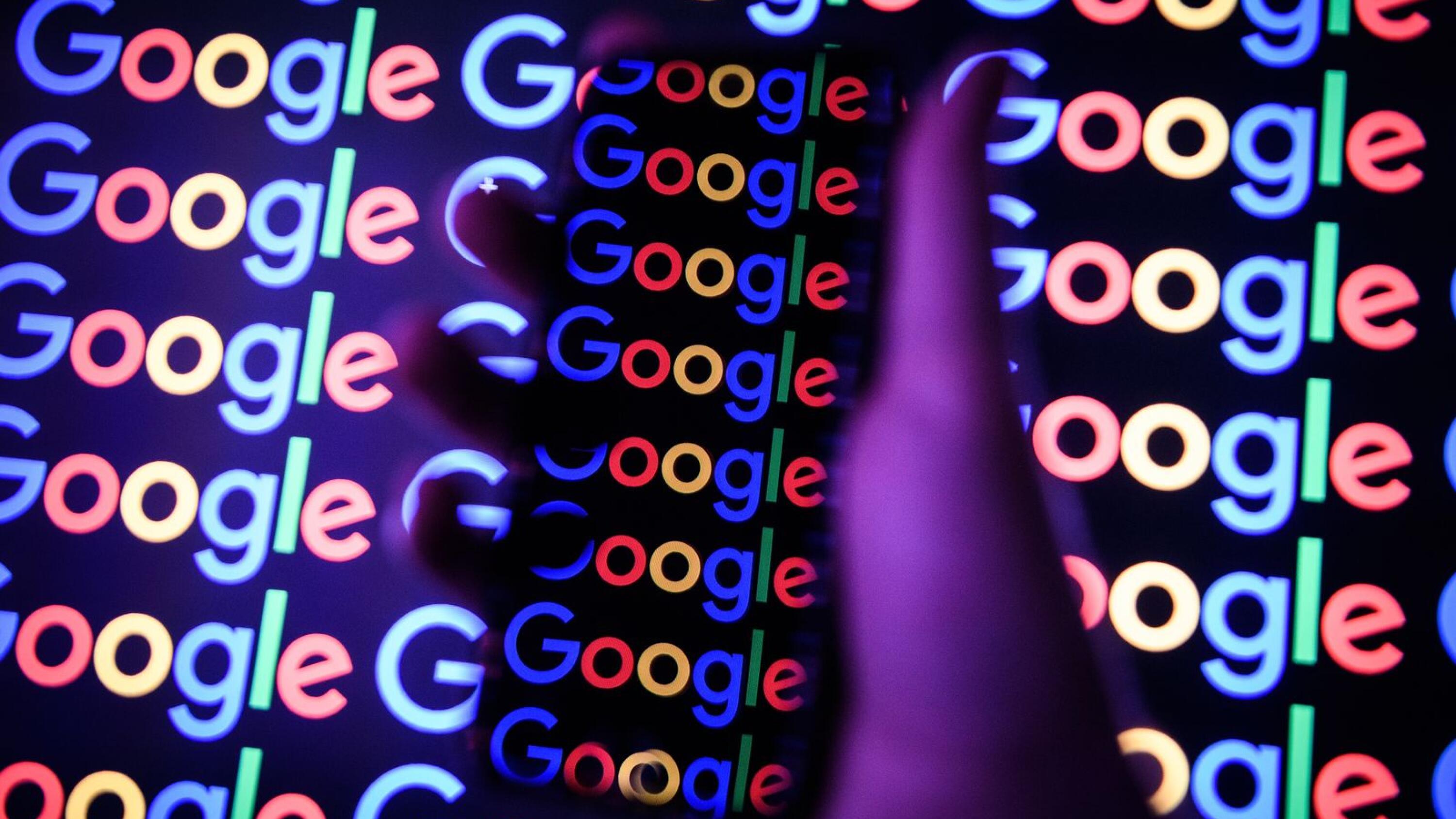Google Faces Breakup Demand Over Online Advertising Dominance

Table of Contents
Google's Monopolistic Grip on Online Advertising
Google's dominance isn't merely a matter of opinion; it's supported by overwhelming data. The company holds a commanding position across multiple advertising sectors, wielding significant influence over search ads, display ads, and YouTube ads. This control stems from Google's tightly integrated ecosystem, where its various services – Google Search, YouTube, Android – work in synergy to solidify its advertising power.
- Market Share Dominance: Google's search advertising market share consistently hovers around 50% or more globally. Its display advertising and YouTube advertising segments also boast significant market share, giving Google an unparalleled reach across the digital advertising landscape.
- Advertising Technologies and Platforms: Google Ads, Google Ad Manager, and other advertising technologies provide a comprehensive suite of tools for advertisers, creating a highly lucrative and efficient system for Google. This integration makes it difficult for competitors to gain traction.
- Competitive Advantages: Google’s vast user base, advanced algorithms, and data collection capabilities give it an insurmountable advantage over competitors. This translates to higher ad prices for businesses and less choice for consumers.
Antitrust Concerns and Regulatory Scrutiny
Google's monopolistic grip on online advertising has naturally attracted significant regulatory scrutiny worldwide. Antitrust investigations and lawsuits are ongoing in various jurisdictions, alleging anti-competitive behavior that stifles innovation and harms consumers.
- Key Allegations of Anti-Competitive Behavior: These accusations frequently center around Google favoring its own services in search results, imposing restrictive clauses on advertisers, and engaging in predatory pricing strategies.
- Major Lawsuits and Outcomes: The EU Commission has issued significant fines against Google for abusing its dominant position, while the US Department of Justice and other regulatory bodies continue to investigate the company's practices. These legal battles are shaping the future of Google and the online advertising landscape.
- Potential Fines and Penalties: The potential fines and penalties Google faces could be substantial, potentially reaching billions of dollars, further impacting the company's future strategies and market position.
The Arguments For and Against a Google Breakup
The debate surrounding a Google breakup is complex, encompassing various perspectives and potential consequences. Proponents argue that breaking up Google would promote competition, innovation, and fairer market practices, leading to lower ad prices and more choice for consumers.
- Pros of a Google Breakup:
- Increased Competition: A breakup could level the playing field, allowing smaller players to compete more effectively and fostering innovation.
- Lower Ad Prices: Reduced dominance could lead to lower advertising costs for businesses, benefiting consumers indirectly.
- Fairer Market Practices: Breaking up Google could lead to a more transparent and equitable online advertising market.
However, opponents highlight potential negative consequences, arguing that disrupting Google's operations could cause significant disruptions to services, economic instability, and implementation challenges.
- Cons of a Google Breakup:
- Potential Service Disruptions: Dividing Google's integrated services could lead to disruptions for users and businesses.
- Market Instability: A breakup might cause short-term market instability as the new entities find their footing.
- Increased Complexity: The process of breaking up such a large and complex corporation would be incredibly difficult and time-consuming.
Potential Outcomes and Future Implications of a Google Breakup
Several scenarios could unfold following regulatory intervention. These range from a complete breakup of Google into separate entities to structural changes within the company, or the implementation of stricter regulations to curb its monopolistic practices.
- Potential Scenarios: A full breakup, a divestiture of specific business units (like YouTube or Android), or the imposition of stricter antitrust regulations are all possibilities.
- Impact on Advertising Costs and Consumer Choices: Increased competition resulting from a breakup could lead to lower advertising costs and more diverse options for consumers.
- Effects on Innovation and Technological Advancements: A more competitive market might foster innovation and accelerate technological advancements in the online advertising space.
Conclusion: The Future of Google and the Debate Over a Breakup
The debate surrounding a Google breakup highlights the complexities of regulating powerful tech giants in the digital age. While Google's dominance in online advertising offers efficiency and scale, concerns about monopolistic practices and stifled competition remain legitimate. The potential outcomes—from a full-scale Google breakup to more nuanced regulatory adjustments—will significantly shape the future of online advertising and the broader tech landscape. We urge readers to engage in further research, share their thoughts on the Google antitrust debate, and contact their representatives to voice their concerns about Google's monopoly and the potential for a more competitive online advertising market. The future of Google, and indeed, the digital world, depends on the resolution of this critical debate.

Featured Posts
-
 Premer Bayru Stoimost Obsluzhivaniya Gosdolga Frantsii Mozhet Dostich E100 Mlrd V God
May 05, 2025
Premer Bayru Stoimost Obsluzhivaniya Gosdolga Frantsii Mozhet Dostich E100 Mlrd V God
May 05, 2025 -
 Poirier Retires Paddy Pimbletts Reaction And Analysis
May 05, 2025
Poirier Retires Paddy Pimbletts Reaction And Analysis
May 05, 2025 -
 Bredli Kuper I Leonardo Di Kaprio Prichiny Okhlazhdeniya Otnosheniy
May 05, 2025
Bredli Kuper I Leonardo Di Kaprio Prichiny Okhlazhdeniya Otnosheniy
May 05, 2025 -
 Kentucky Derby 151 Key Information And Race Day Preparation
May 05, 2025
Kentucky Derby 151 Key Information And Race Day Preparation
May 05, 2025 -
 Sydney Sweeney Channels Heartbreak In Post Split Karaoke Performance
May 05, 2025
Sydney Sweeney Channels Heartbreak In Post Split Karaoke Performance
May 05, 2025
Latest Posts
-
 Wildfire In Los Angeles The Ethics Of Disaster Gambling
May 31, 2025
Wildfire In Los Angeles The Ethics Of Disaster Gambling
May 31, 2025 -
 Iberdrola And Spains Grid A Finger Pointing Frenzy After Nationwide Blackout
May 31, 2025
Iberdrola And Spains Grid A Finger Pointing Frenzy After Nationwide Blackout
May 31, 2025 -
 Investment Opportunities Mapping The Countrys Fastest Growing Businesses
May 31, 2025
Investment Opportunities Mapping The Countrys Fastest Growing Businesses
May 31, 2025 -
 Podcast A Fresh Perspective On Personal Finance
May 31, 2025
Podcast A Fresh Perspective On Personal Finance
May 31, 2025 -
 Middle Managers The Unsung Heroes Of Corporate Success And Employee Satisfaction
May 31, 2025
Middle Managers The Unsung Heroes Of Corporate Success And Employee Satisfaction
May 31, 2025
